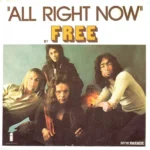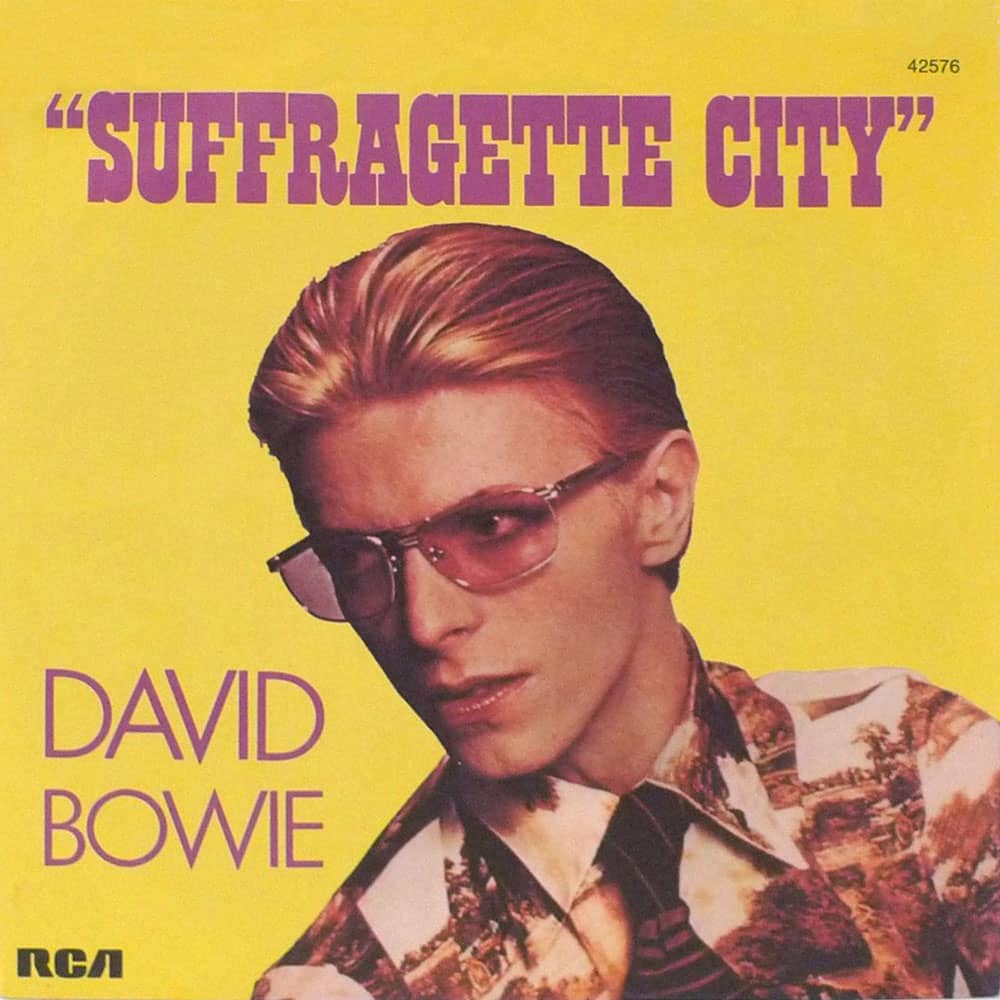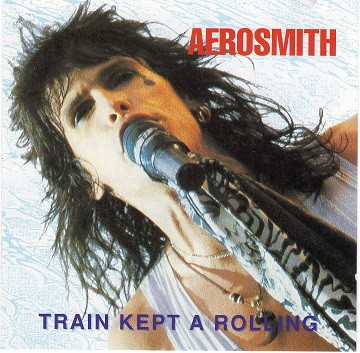 Free, the British rock band that emerged in the late 1960s, created a lasting legacy with their potent blend of blues, rock, and soul-infused sensibilities. Among their extensive repertoire, the song “All Right” stands as a testament to the band’s ability to marry raw emotional expression with sophisticated musical craftsmanship. Released in 1973 on the album Heartbreaker, “All Right” embodies the energy, groove, and lyrical optimism that characterized Free’s later work, capturing the spirit of a band at its creative peak. It is a song that resonates with themes of resilience, liberation, and personal empowerment, making it not just a musical statement but a cultural artifact that continues to influence musicians and listeners alike.
Free, the British rock band that emerged in the late 1960s, created a lasting legacy with their potent blend of blues, rock, and soul-infused sensibilities. Among their extensive repertoire, the song “All Right” stands as a testament to the band’s ability to marry raw emotional expression with sophisticated musical craftsmanship. Released in 1973 on the album Heartbreaker, “All Right” embodies the energy, groove, and lyrical optimism that characterized Free’s later work, capturing the spirit of a band at its creative peak. It is a song that resonates with themes of resilience, liberation, and personal empowerment, making it not just a musical statement but a cultural artifact that continues to influence musicians and listeners alike.
The origins of “All Right” can be traced to Free’s collaborative songwriting process. With Paul Rodgers on vocals, Paul Kossoff on guitar, Andy Fraser on bass, and Simon Kirke on drums, the band consistently combined individual virtuosity with a collective vision. “All Right” emerged from this dynamic synergy, showcasing the interplay between Kossoff’s expressive guitar work, Fraser’s melodic bass lines, and Kirke’s tight, rhythmic foundation. Rodgers’ commanding vocal delivery provides the emotional core, conveying both strength and vulnerability, encapsulating the song’s thematic essence of reassurance and personal affirmation.
Musically, “All Right” exemplifies Free’s signature fusion of blues and rock. Kossoff’s guitar tone is a defining element, rich with sustain, vibrato, and expressive phrasing. His solos and fills provide both melodic contour and emotional intensity, demonstrating an intuitive understanding of space and dynamics. The guitar work is complemented by Fraser’s melodic bass playing, which does more than anchor the rhythm; it actively engages with the harmonic and emotional content of the song. This approach creates a textured, multidimensional soundscape that balances precision with organic energy.
Rodgers’ vocal performance on “All Right” is central to its lasting appeal. His voice carries a raw, soulful quality that conveys sincerity and emotional resonance. The lyrics, though deceptively simple, evoke themes of perseverance, hope, and affirmation. Lines such as “Everything’s gonna be all right” serve as both a personal mantra and a universal message, resonating with listeners across time and context. Rodgers’ phrasing, tone, and dynamic control amplify the impact of these lyrics, creating a connection between performer and audience that feels immediate and authentic.
The rhythm section, anchored by Kirke’s drums, provides both stability and drive. The groove is steady yet flexible, allowing the song to ebb and flow naturally while maintaining a sense of forward momentum. The interplay between drums and bass creates a foundation upon which the melodic instruments and vocals can explore nuanced emotional and harmonic territory. This balance of structure and freedom is a hallmark of Free’s musical approach, and it is particularly evident on “All Right,” where the song’s sense of uplift and momentum mirrors its lyrical optimism.
Lyrically, “All Right” captures a sense of reassurance and liberation. Written during a period marked by both personal and professional turbulence for the band, the song’s affirming message resonates as a declaration of resilience. The simplicity of the lyrics belies their emotional depth, allowing listeners to project their own experiences and struggles onto the song. This universality is one reason why “All Right” remains relevant decades after its release; it speaks to fundamental human experiences of hope, recovery, and personal affirmation.
The production of “All Right” enhances its emotional and musical impact. The recording captures the organic energy of the band while providing clarity and balance across instruments. Kossoff’s guitar is given space to breathe, Rodgers’ vocals are foregrounded without overpowering the ensemble, and Fraser and Kirke’s rhythm section maintains a solid yet dynamic foundation. The production style reflects Free’s commitment to authenticity and musicianship, ensuring that the performance retains its immediacy and vitality even in recorded form.
“All Right” also stands out for its structural elegance. Unlike many contemporary rock songs that relied on complex arrangements or extended improvisation, this track achieves its emotional impact through clarity and focus. The verses and chorus are carefully balanced, with melodic hooks and rhythmic variations that maintain listener engagement. The song’s pacing allows for moments of tension and release, mirroring the emotional journey suggested by the lyrics. This structural sophistication, combined with the band’s technical prowess, ensures that “All Right” remains compelling across repeated listens.
Culturally, “All Right” reflects the optimism and resilience that characterized much of the early 1970s rock scene. At a time when social and political upheaval was pervasive, music often served as a vehicle for personal expression and collective catharsis. Free’s approach, blending blues sensibilities with rock energy, created songs that were both reflective and empowering. “All Right” exemplifies this ethos, offering a message of hope and assurance delivered through compelling musical craftsmanship.
The song’s impact extends beyond its initial release, influencing musicians and bands across genres. Kossoff’s guitar tone and phrasing inspired countless rock and blues guitarists, while Rodgers’ vocal style became a benchmark for expressive, soulful rock singing. The song’s combination of lyrical simplicity and emotional depth has served as a template for artists seeking to convey complex feelings through accessible, resonant music. Additionally, the rhythmic and harmonic interplay within the band demonstrates the potential for ensemble cohesion to amplify individual virtuosity, a principle embraced by generations of musicians.
Live performances of “All Right” further highlight its power and versatility. Free’s stage presence, particularly during the mid-1970s tours, brought an additional layer of immediacy and intensity to the song. Kossoff’s improvisational solos, Fraser’s responsive bass lines, and Kirke’s dynamic drumming transformed the track into a living, evolving performance. Rodgers’ vocal delivery in these settings often incorporated subtle variations, emphasizing different emotional nuances and engaging audiences in a shared experience. These live renditions underscore the song’s adaptability and the band’s commitment to connecting with listeners through performance.
The historical context of “All Right” also contributes to its significance. Free was navigating both creative ambitions and personal challenges during the recording of Heartbreaker, and “All Right” reflects the tension between these forces. The song’s affirming message can be seen as both a personal declaration and a broader cultural statement, resonating with listeners facing their own uncertainties. Its enduring relevance is partly due to this ability to speak to both specific and universal experiences, blending personal authenticity with broad emotional accessibility.
Musically, “All Right” showcases Free’s ability to integrate blues influences into a rock framework without sacrificing originality. Kossoff’s phrasing draws from traditional blues idioms while incorporating modern rock sensibilities, creating a sound that is both familiar and innovative. Fraser’s bass work complements this approach, weaving melodic lines that enhance harmonic richness and rhythmic drive. Kirke’s drums provide both propulsion and nuance, balancing technical precision with expressive freedom. Together, these elements create a cohesive musical statement that embodies the spirit of collaboration, creativity, and mastery.
The song’s lyrical optimism is particularly noteworthy given the band’s broader oeuvre. Free’s catalog often explores themes of struggle, longing, and emotional intensity, and “All Right” represents a moment of clarity and affirmation within this landscape. The lyrics’ insistence on reassurance—“Everything’s gonna be all right”—functions as both mantra and narrative, providing a framework through which listeners can interpret the song’s emotional and musical gestures. This combination of lyrical simplicity and depth is central to the track’s lasting appeal.
“All Right” also exemplifies the enduring power of ensemble synergy. Each member of Free contributes distinct musical and emotional elements, yet the song achieves a sense of unity and cohesion that elevates the individual contributions. Kossoff’s guitar serves as both melodic guide and emotional amplifier, Rodgers’ vocals convey narrative and feeling, Fraser’s bass adds texture and harmonic grounding, and Kirke’s drumming establishes both rhythm and momentum. This collaborative approach results in a musical experience that is greater than the sum of its parts, demonstrating the potential for rock music to achieve both technical excellence and emotional resonance.
The production choices on “All Right” reinforce its thematic content. The mix emphasizes clarity and separation among instruments while preserving the organic interplay that defines Free’s sound. Subtle reverb and tonal balancing enhance the song’s emotional warmth, creating a sonic space that mirrors the lyrical message of reassurance and liberation. The result is a recording that captures both the immediacy of performance and the enduring emotional impact of the song’s core themes.
The cultural reception of “All Right” highlights its significance within both Free’s career and the broader rock canon. Critics have praised the track for its musical sophistication, emotional honesty, and ability to balance blues-rock traditions with contemporary sensibilities. Fans often cite the song as a defining moment in the band’s catalog, celebrating its combination of groove, melody, and lyrical optimism. Over time, “All Right” has maintained relevance, appearing in retrospective collections, radio rotations, and digital streaming platforms, underscoring its enduring appeal.
The song’s influence can also be observed in subsequent generations of musicians. Guitarists, vocalists, and bands across blues-rock and classic rock traditions have drawn inspiration from Free’s approach on “All Right,” particularly the integration of emotive guitar phrasing, melodic bass interplay, and compelling vocal delivery. The song’s ability to convey complex emotions through accessible musical gestures has served as a model for artists seeking to balance artistry and audience engagement.
Live recordings and reinterpretations of “All Right” demonstrate the song’s adaptability and enduring energy. Variations in tempo, phrasing, and instrumental arrangement highlight its structural flexibility while preserving its essential character. These performances reveal the depth and nuance embedded in Free’s songwriting, emphasizing the capacity for rock music to evolve dynamically while maintaining emotional resonance.
Ultimately, “All Right” exemplifies Free’s mastery of blues-rock fusion, emotional storytelling, and ensemble cohesion. The track’s combination of musical sophistication, lyrical affirmation, and cultural resonance ensures its continued relevance, positioning it as a landmark achievement in the band’s career and a defining moment in early 1970s rock. Its enduring appeal lies in its ability to articulate themes of resilience, liberation, and emotional clarity, creating a song that is both historically significant and timelessly relatable.
The legacy of “All Right” extends beyond its immediate musical impact. It reflects a period of artistic innovation, personal expression, and cultural engagement within rock music. Its influence can be traced in the work of subsequent musicians who prioritize authenticity, emotional depth, and collaborative interplay


